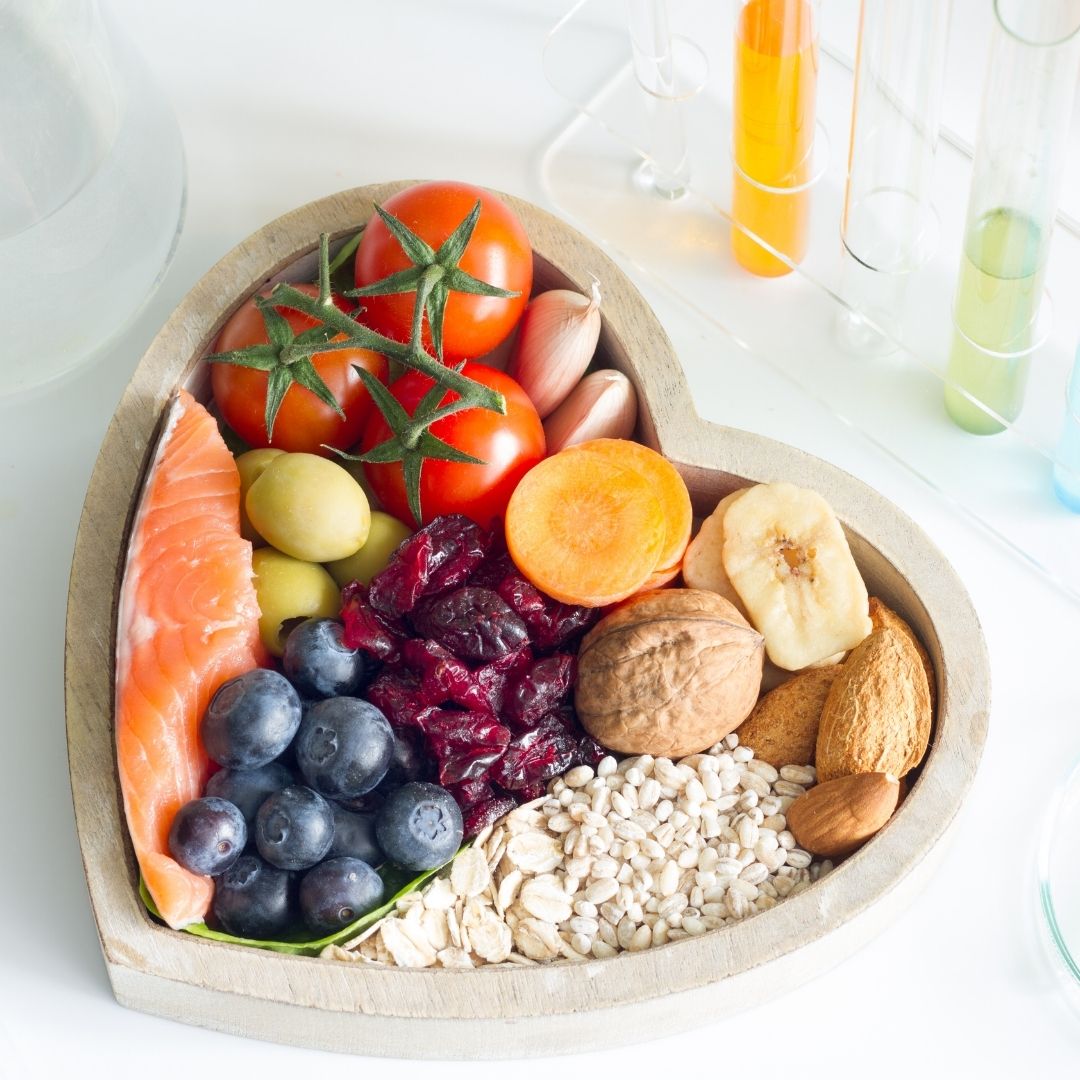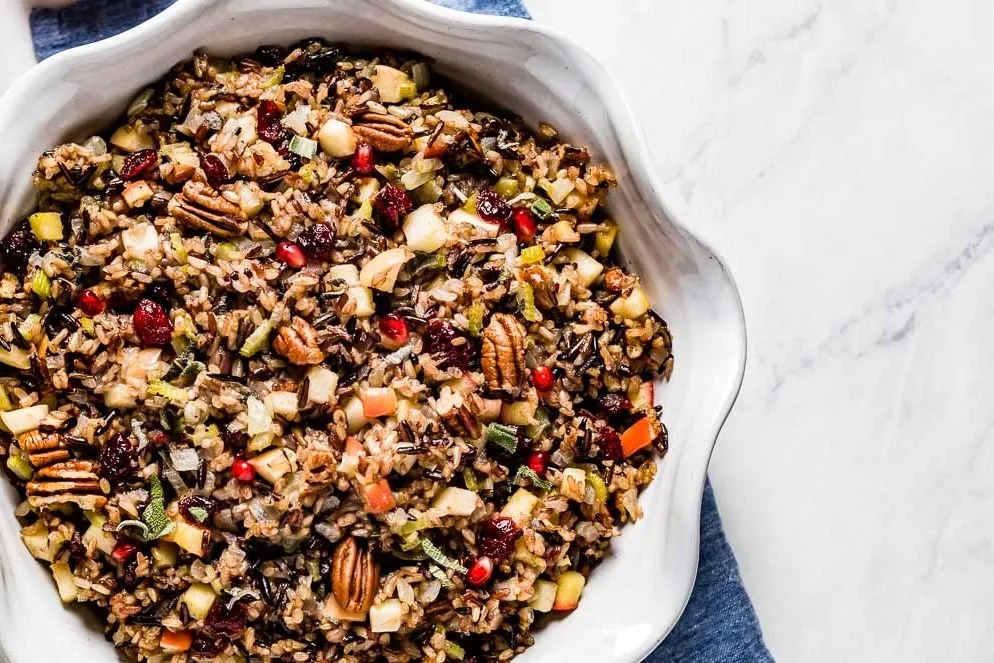September can feel a lot like a ‘second January’ for your body. As summer comes to an end and routines shift - kids heading back to school and adults returning to busy work schedules - stress levels often rise. This extra pressure can take a toll on your immune system, making you more vulnerable to infections. On top of that, the cooler weather brings an increase in colds and flu, putting even more strain on your body’s defences.
What can we do? Well, one of the most effective ways to support ourselves is by getting our nutrition in order. What we eat directly affects brain performance, mood stability, energy levels and immune resilience. But even with the best intentions, diets often fall short in key nutrients essential during busy months.
In this post, I’m going to outline the nutrients that matter most, how to spot potential deficiencies and practical ways to ensure everyone in the family (including you!) stays energised, focused, and resilient this autumn.
1. Omega-3 Fatty Acids: Brain Power and Emotional Balance
Omega-3s are essential fats that build brain cells, enhance memory, improve focus, and help regulate mood. They also support the immune system – crucial as the school term or work deadlines ramp up.
Signs of low omega-3 intake:
- Difficulty concentrating
- Irritability or low mood
- Memory lapses
How to include them:
Oily fish such as sardines, mackerel, and salmon are ideal, but portions are often too small to meet our needs. Everyone benefits from supplementation, for adults I suggest either the Bare Biology Life & Soul oil or capsules and (for little ones) the Bare Biology Action Heroes liquid. Take once daily alongside any meal. The oils can be hidden in any room temperature or cold food such as yoghurt, cooked (but cooled) fruit or a smoothie.
2. Protein: Steady Energy and Mood Stability
Protein helps maintain steady blood sugar, supports growth and repair, and keeps mood and energy levels stable. Perfect for busy school or workdays.
Signs of low protein:
- Mid-morning energy crashes
- Irritability or low motivation
- Difficulty focusing
How to boost intake:
Ensure every meal includes protein. For breakfast, try pre-boiled eggs, protein pancakes, pre-prepared sandwiches, leftovers or thick yoghurt. At lunch and dinner ensure you’re including lean meats, fish, seafood, tofu, and opt for things like lentil or bean based pastas or noodles to easily enhance quick meals.
3. Iron: Concentration and Stamina
Iron is vital for energy, focus and stamina. Deficiency can make children restless and adults lethargic, and it’s often overlooked!
Signs of low iron:
- Fatigue
- Pale skin or brittle nails
- Difficulty concentrating
How to increase intake:
Red meat, organ meats, lentils and seeds are rich in iron. Incorporate these into meals like pasta sauces, soups, stir-fries, or snacks – adults and children benefit equally. Some of my go-to iron-rich recipes are:
- Liver & oat bread - one portion (one thick or two thin slices) provides your total daily requirement for iron, vitamin A, B2, B9 (folate), B12, zinc, copper, and choline. Plus, around 8-10g of protein!
- Sneaky liver kofta - delicious and an incredible vitamin hit!
- Enhanced bolognese - no faff, local ingredients. Enjoy this delectable sauce atop some pasta or mashed potato. Ultimate comfort meal!
4. Vitamin D: Immunity, Mood and Bone Health
Vitamin D is key for immunity, mood, and bone strength. In the UK, sunlight from October to April isn’t strong enough for our bodies to make sufficient vitamin D, making supplementation important.
Signs of deficiency:
- Frequent colds or infections
- Low mood or irritability
- Muscle aches
How to supplement:
You can also check levels at home (find my test here) and top up with the Beam & Balance D3/K2 sprays if needed (unflavoured/peppermint). If your levels are optimal already but you want to keep them that way use the combined Rise & Shine omega + Vit D3.
5. Zinc, Magnesium and Antioxidants: Resilience and Focus
Zinc, magnesium and antioxidants support immune function, stress management, sleep quality and overall resilience. Diets high in refined carbs and low in colourful vegetables, nuts and seeds can cause dips in these nutrients.
Signs of low levels:
- Poor sleep
- Increased susceptibility to colds
- Trouble focusing or low motivation
How to include them:
Focus on colourful meals with nuts, seeds, and vegetables. Even simple changes – like adding grated carrot to pasta or a handful of seeds to breakfast – can make a noticeable difference for both children and adults. If trying to broaden your family’s horizons a rainbow picky plate when they’re doing homework or waiting for dinner can be a great idea - chop peppers, carrots, apple, cucumber, place on a large serving platter with a bit of yoghurt or hummus to dip in and let them experiment with trying new things.
Whether you’re a parent helping kids settle into school or an adult returning to a busy work routine, the simplest way to thrive this September is ensuring adequate intake of key nutrients: omega-3s, protein, iron, vitamin D, zinc, magnesium and antioxidants. With these in place, you’ll be energised, focused and resilient – and ready to sail through the month with confidence.
.jpg)
.jpg)



.png)



.jpg)
.png)



.jpg)
.jpg)
.jpg)
.jpg)
.jpg)
.jpg)
.jpg)
.jpg)
.jpg)
.jpg)
.png)
.png)

.png)
.jpg)

.png)
.png)
.png)
.png)
.png)


.png)
.png)






